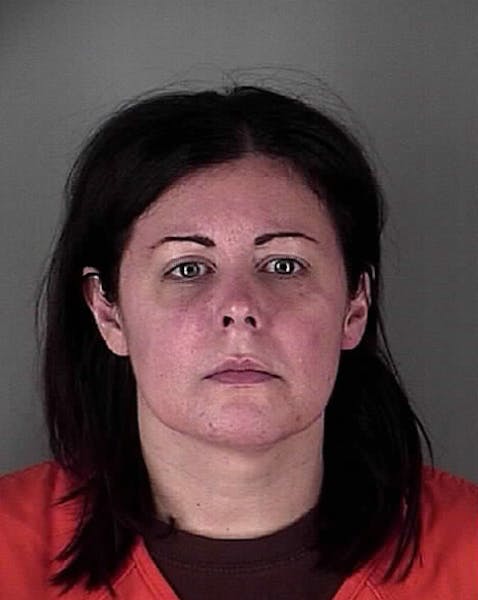After scathing comments from the judge, former nonprofit CEO Bill Davis was sentenced Friday to four years in federal prison for misspending hundreds of thousands of dollars intended to help low-income people.
Davis, 66, the longtime head of Community Action of Minneapolis (CAM), pleaded guilty in June to 16 counts of theft and fraud. He admitted to using more than $800,000 of the nonprofit's money on lavish trips with girlfriends, cars and other personal items. He will have to pay restitution while in prison in Duluth and after his release.
Davis said his poor personal judgment was made on emotional grounds. But U.S. District Judge Patrick Schiltz replied that Davis was the most audacious of the dozens of fraudsters he has sentenced over the years.
"This was not a momentary lapse of judgment," Schiltz said. "Stealing became a way of living."
Community Action was a nonprofit formed to provide energy and heating assistance and other services to low-income residents. Davis ran the organization for more than two decades until a state audit uncovered his personal use of the organization's funds. More than 50 employees lost their jobs, several of whom gave emotional victim impact statements against Davis on Friday. "All the good work done by CAM is wiped out," said Bonnie Johnson, who worked for the organization for 30 years. "In a meeting shortly after we were shut down, Davis referred to us a collateral damage," she said. "I'm a person."
Federal prosecutors said in court filings that Davis had treated the agency's bank account as his "personal piggy bank." Between 2009 and 2014, he racked up an average of $4,000 to $6,000 a month on the organization's credit card. He paid for vacations for himself and for "five different girlfriends to locations like Las Vegas, Niagara Falls, the Bahamas, Phoenix and Key West," court documents said.
Davis admitted to using the nonprofit's money on a trip to the Bahamas with his fiancée, Patricia Banks, in January 2012. Davis claimed that the trip was connected with a Ben & Jerry's ice cream shop that Community Action ran near the University of Minnesota, though the shop had closed in 2010. He also admitted to buying a car for personal use with Community Action funds and seeking authorization from his board afterward.
Davis was charged after a Department of Human Services audit found that the nonprofit organization had spent at least $800,000 between 2011 and 2013 for a variety of unauthorized purchases and activities, including a car loan for Davis, travel and golf outings. After the Star Tribune reported the audit in 2014, the state raided the organization's offices, confiscated documents and then shut it down.
Davis was suspended, and several high-profile DFLers resigned from the board, including U.S. Rep. Keith Ellison, state Sen. Jeff Hayden and several Minneapolis City Council members.
Davis' son, Jordan, a former Minneapolis police officer, is serving two years in federal prison in a separate but related case for accepting $140,000 in payments over four years from the Ben & Jerry's shop for services that the U.S. attorney's office said he did not perform. Jordan's wife, Jennie, said he tried to quit the business for years, but Bill Davis kept convincing him he needed to stay.
Susan Gaertner, Bill Davis' attorney, said he should be held accountable for his actions, "but let's get him back into the community so he can continue to serve." She cited support letters sent to Schiltz, his work as a civil and human rights leader, his role as a family patriarch and work for the late U.S. Sen. Paul Wellstone.
Davis apologized to his family, friends and public for violating their trust. He said he was a good person who made bad decisions. "This has brought me a level of pain and humiliation," he said. "I will never travel down this path again."
Although four years was the maximum punishment suggested by federal sentencing guidelines, Assistant U.S. Attorney Kimberly Svendsen argued for an upward variation. She said Davis' actions caused the nonprofit's workers to lose their jobs and disrupted the lives of their clients. "What happens when the public sees somebody like Davis taking trips to the Bahamas and having lunch with his cronies?" she asked.
Schiltz told Davis he had no reason to steal because of his $200,000 salary and employment benefits. He added that a sentence longer than four years would have been justified, but he decided to give Davis a break because of his lack of a criminal history, his guilty plea and his previous good works.
Davis declined to comment after the hearing, other than to say "he was still digesting things."
David Chanen • 612-673-4465

Want to share info with the Star Tribune? How to do it securely

'Safe recovery sites' would offer syringes, naloxone and more to people using drugs. The plan could be in peril.
New Minnesota GOP leaders seek peace with party's anti-establishment wing

Who is Republican Lisa Demuth, Minnesota's first House speaker of color?

